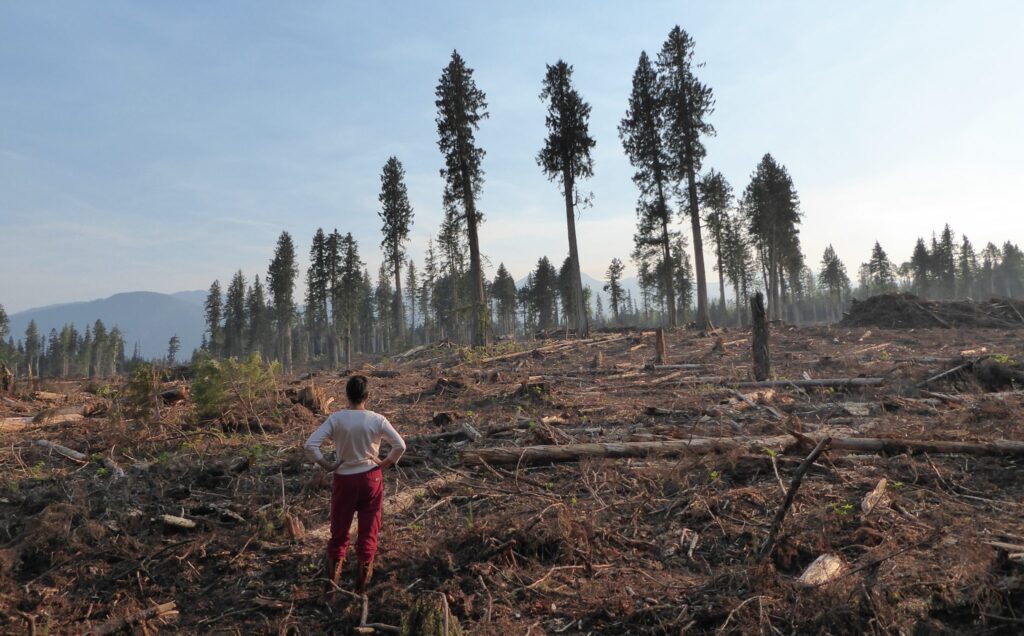Controversial UK Biomass Company Drax Partners with California Rural Counties to Expand Wood Pellet Production


Controversial UK Biomass Company Drax Partners with California Rural Counties to Expand Wood Pellet Production
The UK-based bioenergy company Drax, which has faced accusations of misleading regulators about sourcing wood pellets from old-growth forests, is now partnering with rural county supervisors in California, including Humboldt County’s First District representative, to expand its operations in Northern California.
Drax is working through a public benefit corporation formed by the Golden State Finance Authority and the Rural County Representatives of California (RCRC), with stated goals of promoting public safety, forest resiliency, and wildfire risk reduction. However, the partnership is raising concerns among dozens of environmental advocacy groups, including the Environmental Protection Information Center (EPIC), which accuse Drax of deceptive practices and greenwashing.
“Chopping down our forests, turning them into wood pellets, and shipping them to Asia so that they can be burned for electricity doesn’t make any sense, said Matt Simmons, Climate Attorney with the Environmental Protection Information Center. “We need to focus on developing real solutions to the climate crisis, not excuses to overlog our forests.”
The government-linked nonprofit Golden State Natural Resources, governed by rural supervisors, is planning to expand industrial-scale wood pellet production in the state, having signed a memorandum of understanding with Drax in February 2022.
The Partnership for Policy Integrity, a data-driven nonprofit focused on protecting forests and the climate, has been monitoring Drax’s activities in both the United Kingdom and the United States.
Laura Haight, U.S. Policy Director at the Partnership for Policy Integrity, characterizes the new relationship as “troubling.” She explains, “I think it’s misleading what’s going on because it looks like a group of rural county supervisors trying to pursue economic development while presenting themselves as doing something beneficial for forest ecosystems. Meanwhile, we learned earlier this year that they had entered into a memorandum of understanding with Drax, a UK-based corporation, to potentially finance, invest in, and even operate this project, as well as take the wood pellets produced. They’re talking about two very large wood pellet mills—of a size and scale unprecedented in California—producing at least a million tons of pellets a year, mostly for export to Asia, where they would be burned and treated as renewable energy.”
The organization argues that promoting biomass as a green energy or climate solution is an example of misleading carbon accounting. Dr. Mary Booth, an environmental scientist and founder of the Partnership for Policy Integrity, elaborated: “Bioenergy is a huge greenwashing scam. Basically, any little kid can tell you that burning trees instead of growing them for climate change mitigation is completely insane. Burning wood obviously emits carbon, but what’s interesting is that burning wood for electricity generation actually emits considerably more carbon per megawatt hour than even coal.”
Earlier this Tuesday, Golden State Natural Resources published its 1,300-page Draft Environmental Impact Report (DEIR) for the proposed Forest Resiliency Demonstration partnership with Drax, officially starting the 60-day public review period. However, Tom Wheeler, executive director of the Environmental Protection Information Center (EPIC), pointed out a significant discrepancy: the appendices of the DEIR have not been published. He referenced the California Code of Regulations, which states that since the appendices are considered part of the DEIR, the public should have the right to review and comment on them. Without access to these documents, Wheeler argued, the comment period cannot officially begin.
Environmental groups are calling for an immediate change to the public meeting schedule to allow more time for review and public input. As it stands, three meetings are scheduled for October 28, October 30, and November 4. They argue that the current timeline does not provide sufficient time for meaningful public input, especially in communities most affected.
Other organizations expressing opposition include Little Manila Rising, Valley Improvement Projects, Tree Stockton Foundation, Mount Shasta Bioregional Ecology Center, Ebbetts Pass Forest Watch, Sierra Club California, Partnership for Policy Integrity, Biofuelwatch, Environmental Protection Information Center (EPIC), Center for Biological Diversity, and Green America.
The final publication of the Environmental Impact Report, along with the review and decision on the proposed wood pellet mills in Tuolumne and Lassen counties, is expected in 2025. Environmental groups have vowed to continue monitoring the process closely and advocating for their concerns to be addressed.
https://www.bbc.com/news/science-environment-68381160
www.theintercept.com/2024/09/30/drax-wood-pellet-energy-air-pollution
